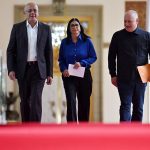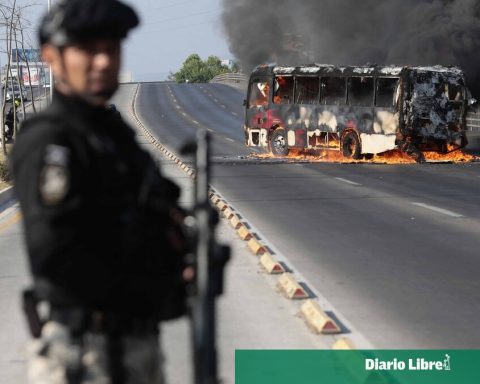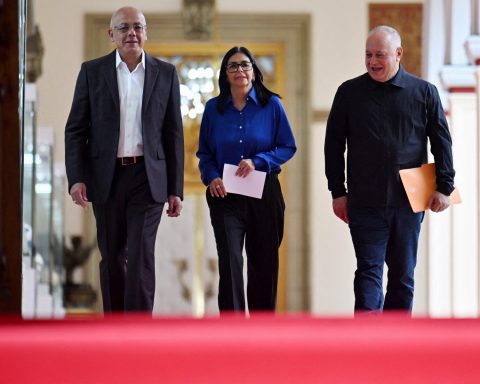August 6, 2024, 4:00 AM
August 6, 2024, 4:00 AM
“Uncertainty” might be the most appropriate word to reflect the mood of the people in Bolivia at the moment we are living in. “Concern” is the second perception of the citizens in general and of the business sector in particular. “Discouragement” is the perception of those who are being greatly affected by the scarcity of the dollar. “Impotence” is the perception of those who see how years of hard work are disappearing and their dreams of progress are being frustrated, without being able to do anything other than pray to God for all this to change. If you add to this the political and social instability, there is certainly little to celebrate during these Fiestas Patrias.
Alan Camhi Rozenman, President of the Bolivian Institute of Foreign Trade (IBCE), recently outlined the country’s outlook these days: “Bolivia is growing less and less; inflation is rising; unemployment is falling but not unemployment; fiscal deficit for more than 10 consecutive years; internal and external public debt continues to grow; Net International Reserves are at a historically low level; fuel supplies are not normal and the scarcity of the dollar has complicated absolutely everything, since its increase in value causes an increase in the cost of imports, an escalation of prices of foreign products and a fall in their supply in the market, negatively impacting economic agents that depend on the raw materials, inputs, equipment, spare parts and others that they import, all of which affects production, trade and services.”
One of Camhi’s biggest concerns is foreign trade, the hardest hit sector of the economy, as in May: “The trade deficit exceeded 400 million dollars; exports have already fallen by 1,118 million dollars, with soybeans and derivatives expected to fall by more than 600 million dollars by the end of the year; imports have also fallen by 718 million dollars, with the fall in external purchases of Transportation Equipment by 233 million dollars, Capital Goods by 159 million and Supplies by 141 million dollars not being a good sign. All of this negatively affects business activity, macroeconomic stability and people’s lives, placing Bolivia in a difficult position internationally due to the deterioration of its image and country risk rating. At this rate, will there be anything to celebrate in the Bicentennial Year, 2025?” he mused.
Seeking to contribute with answers to the questions that keep Bolivians awake at night in the face of such a complex situation, the Chamber of Industry, Commerce, Services and Tourism of Santa Cruz (CAINCO) held its “Economic Forum 2024 – Proposals that add up”, with international specialists renowned for their vast experience in economic issues (07.30.2024).
Jean Pierre Antelo Dabdoub, President of CAINCO, opened the Forum with a thoughtful reflection on the country’s economic situation, focusing not only on why and how we got there, but also sending a message of hope saying that we still have time to change, urging, to do so, to take measures based on common sense, overcoming the limitations imposed by ideology, such as not giving the private sector the place it deserves as an agent of development, creator of wealth and decent jobs for citizens.
Wladimir Zanoni (IDB), Sebastián Franco (BM), Horacio Valencia (CAF), Eduardo Levy Yeyati (UTDT) and Alejandro Werner (Georgetown Americas Institute) were the economists who, through the presentation of their ideas, contributed to the understanding of the current moment and possible solutions.
I was delighted to hear the coincidences between their diagnoses and proposals and the business sentiment, something that was reflected by the Bolivian economist Pablo Mendieta Ossio (CEBEC Director) at the end of the Forum, proposing in his presentation as a “necessary condition” a comprehensive macroeconomic adjustment with specific characteristics for the country, and, as a “sufficient condition”, the promotion of economic activity, especially exports, to recover the country quickly.
Among the “proposals that add up”, he pointed out the need to solve the unsustainable fiscal deficit, uncontrolled monetary financing, external imbalance and repressed productive supply; optimize public investment, focus subsidies and grants, align state sector remuneration, improve the accounts of public companies and reduce tax distortions and uncontrollable financing; to stabilize the monetary part, limit the financing of the Central Bank of Bolivia (BCB) to the TGN, allow the automatic entry of credits approved in the PGE and give the BCB the independence provided for in the CPE, clarifying that promoting the private sector is vital for recovery, mentioning as the sectors with the fastest reaction, agriculture, forestry, tourism and digital services.
During these National Holidays, let us regain the faith that another Bolivia is possible, a dignified and sovereign Bolivia, yes, by first building a productive and exporting Bolivia that brings growth with stability, and wealth with decent jobs from the private sector, for the benefit of all Bolivians. It only depends on us, on the rulers and the governed…


















